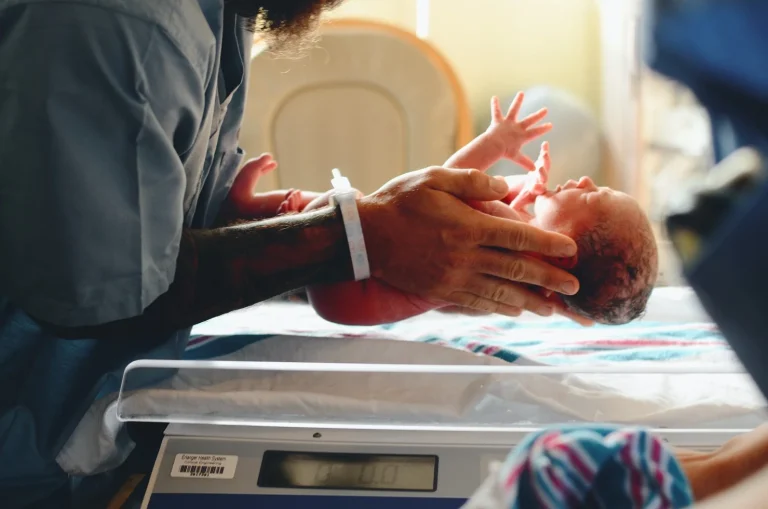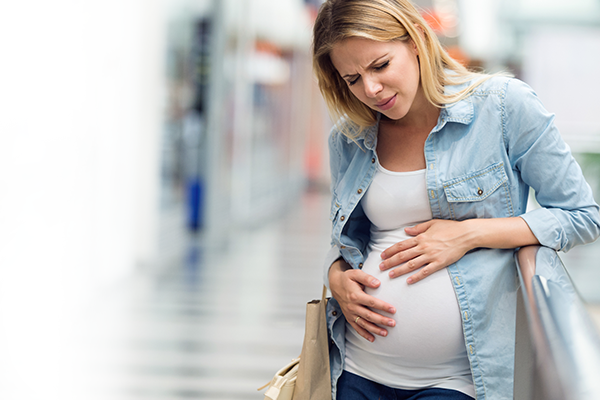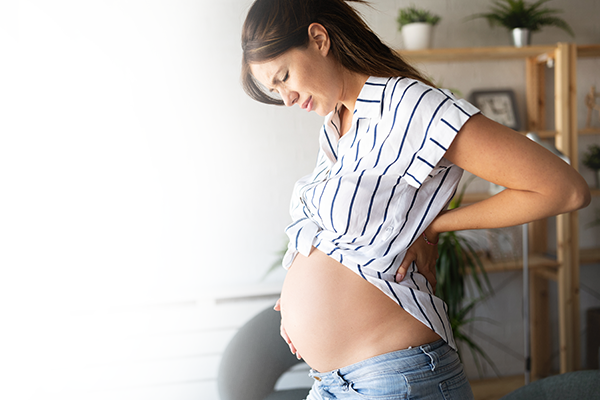Many expectant mothers struggle with the annoying symptoms of intimate infections during pregnancy. Untreated infections can lead to complications. It is therefore important that a pregnant woman visits her GP if she experiences any worrying symptoms. What are the symptoms of genital infections and how are they treated?
During pregnancy, the normal function of the immune system in the expectant mother’s body is disrupted. This also applies to infections in the genital area. They are most frequently caused by fungi during pregnancy. It is assumed that up to 40% of pregnant women are affected by candidiasis.
Symptoms of intimate infections during pregnancy
During pregnancy there is often an increase in vaginal secretions. This is a completely normal symptom. However, if an infection develops in the intimate area, a characteristic symptom is a discharge with an unpleasant odour and a different colour than before. It can be greyish, white (cheesy) or yellow. In addition, expectant mothers also complain of persistent itching or pain when urinating.
Intimate infections during pregnancy – Fungal diseases
Infections in the intimate area during pregnancy are most frequently caused by fungi. During pregnancy, there is an imbalance between the components of the genital microbiota, which in turn promotes the colonisation of the vagina by fungi. In addition, high oestrogen and progesterone levels can have an immunosuppressive effect and increase the risk of infections in the genital area. Women who have already been carriers of Candida are more susceptible to candidiasis.
Other intimate infections during pregnancy
In addition to fungi, intimate infections during pregnancy can also be caused by viruses and bacteria. However, this is much rarer than candidiasis. In most cases, the development of a bacterial infection is due to a decrease in the number of lactic acid bacteria in the vagina.
Intimate infections during pregnancy – prevention
Intimate hygiene during and outside pregnancy is similar. Avoid using flannels and sponges, which harbour many microorganisms. The intimate area should always be wiped from front to back (from the vagina to the anus). Expectant mothers should also avoid wearing underwear made of unnatural, artificial materials. The intimate hygiene products used are also important. They should always have a pH value that is as neutral as possible so that the natural protective barrier of the vagina is not impaired. A healthy and balanced diet in everyday life should also not be forgotten. In the case of recurrent infections, probiotics are also recommended to strengthen the physiological bacterial flora.
Intimate infections during pregnancy – treatment
Unfortunately, intimate infections have a tendency to recur. For this reason, they should not be underestimated. In order to diagnose the cause of the infection, a speculum examination and a microbiological examination, known as a culture, are carried out. Antifungal treatment is used for fungal infections, while antibiotics are required for bacterial symptoms. Oral or topical treatment is possible and is decided by the gynaecologist.
Intimate infections during pregnancy – complications
In most cases, intimate infections during pregnancy do not lead to serious complications and are mild. However, there are reports of a possible infection of the baby in the uterine cavity. This occurs via the placenta or after an amniocentesis. The symptoms of congenital candidiasis in newborns are skin lesions on the head, hands and feet. If infectious material is inhaled, the child may develop pneumonia. Therefore, the gynaecologist must initiate appropriate treatment if an infection in the genital area, e.g. caused by fungi, is detected.










